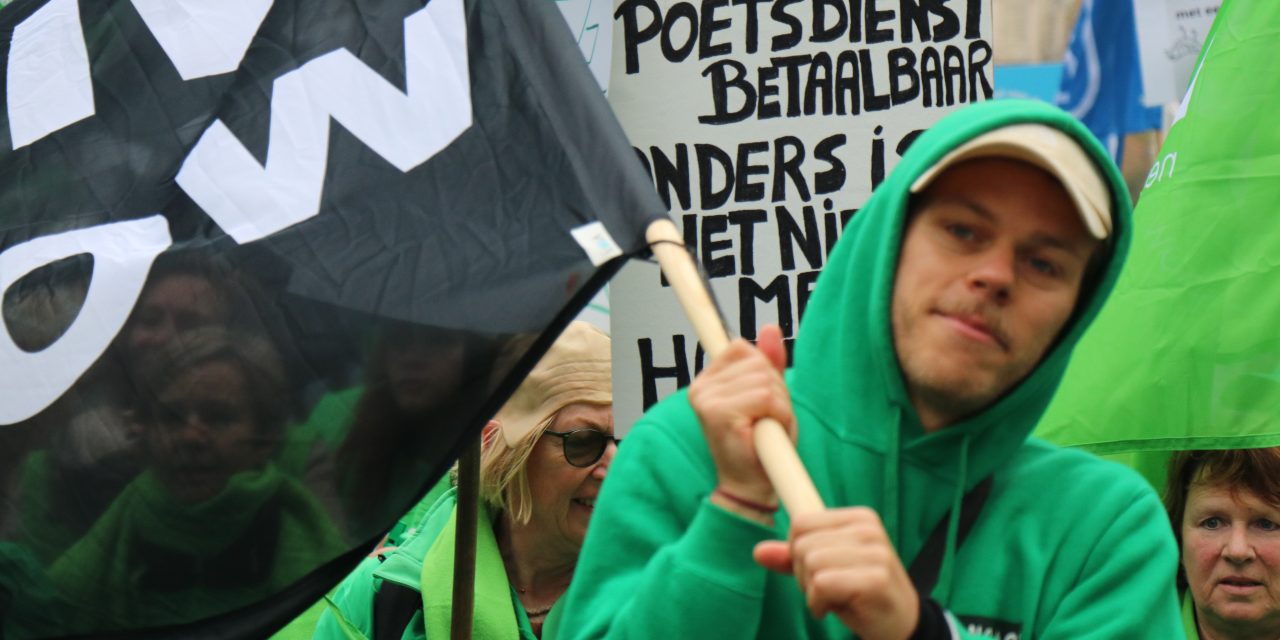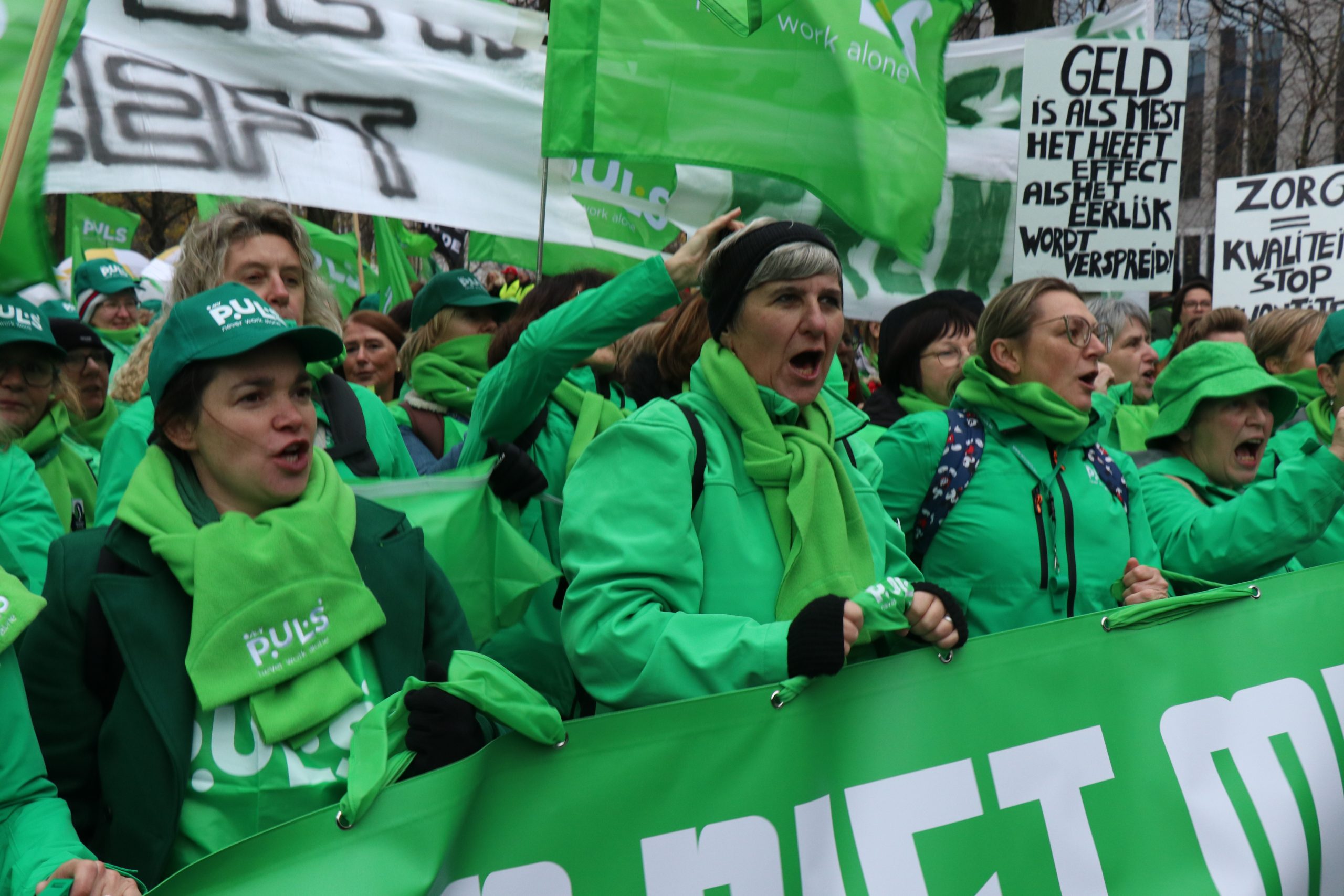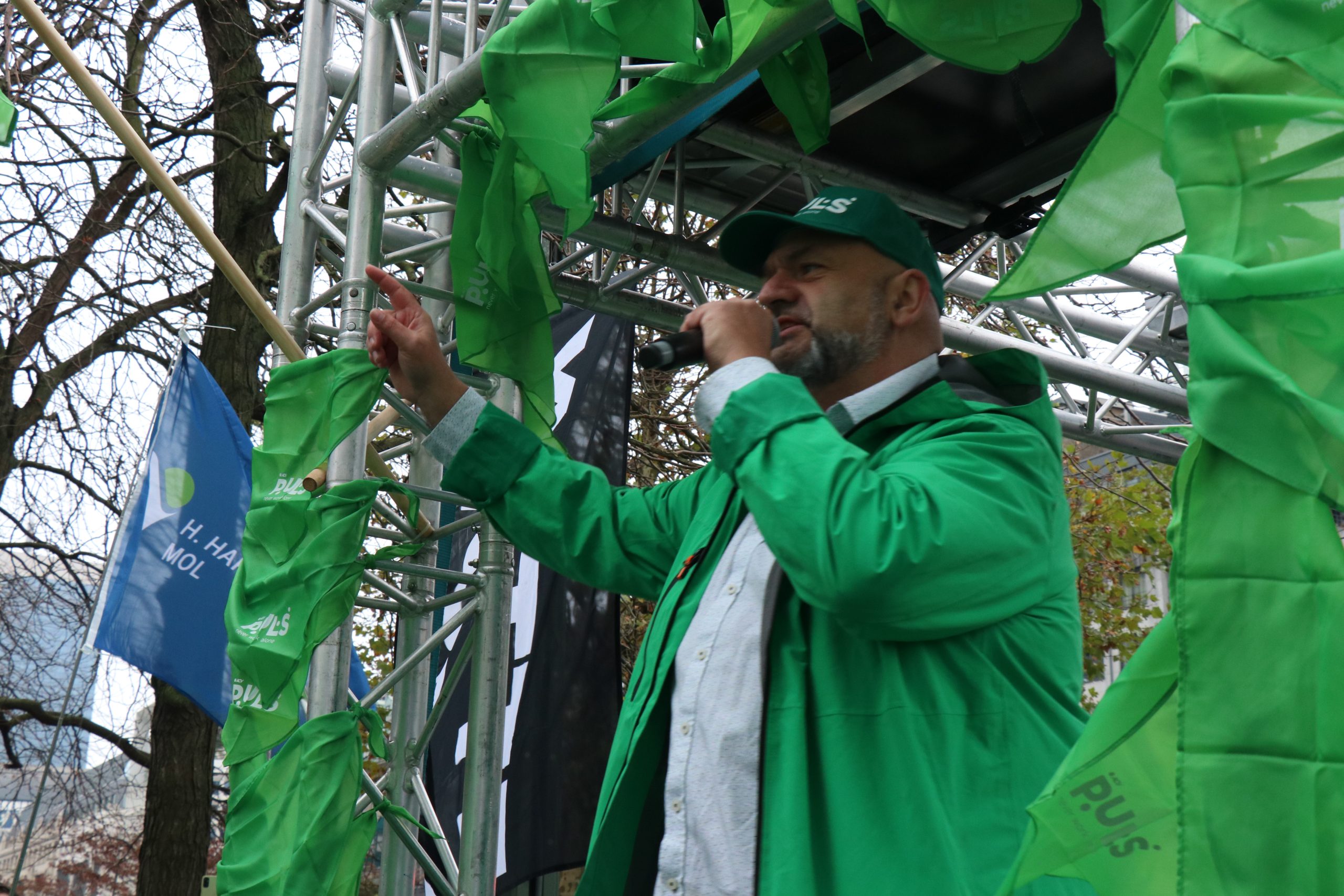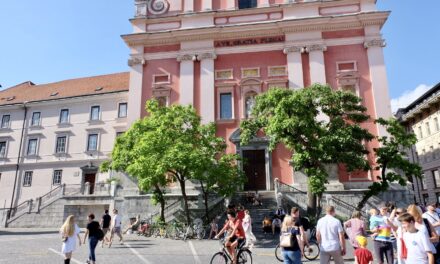As the roads get closed off, people gather near the Brussels-North station in the Belgian capital. Within the hour, there will be a sea of green and red flowing through the streets. With this action, the Belgian non-profit sector hopes to draw the attention of the not-yet-formed government, before it’s too late. For, without new policy and investments, these workers, mostly active in health- and care-branches, fear “a serious crisis in the near future”. They are not the only ones: the non-profit sector in Europe is having a hard time in general, with funding and donations decreasing, staff shortages in many areas and rising work pressure, troubles are increasing and the dissatisfaction within the sector grows rapidly.
“It is important to look at the demographics,” Olivier Remy from ACV Puls, a Belgian trade union partly responsible for the organization of this protest, explains. He is the one in charge of this day and can be seen running around the street trying to get everything in order before it is time to leave. “The Belgian population is getting older, which means the people working in the health and care sector are as well. Many will soon retire, while there are already staffing shortages.”
Remy predicts a crisis in these sectors, at least without proper action. “To prevent this, we need to have policy which better appreciates people in this sector, improve the wages and working conditions, decrease the overtime and increase the free days.”
The same can be heard on European level, according to Jan Willem Goudriaan, General Secretary of The European Federation of Public Services (ESPU). “This has been going on for years, but the sector is now really prepared for action.” He points out the many recent protests, like the one in the Netherlands on November 12th, where pharmacy assistants put down their work to strike for better wages. Now, however, he is standing in the crowd in Brussels to pronounce his support.

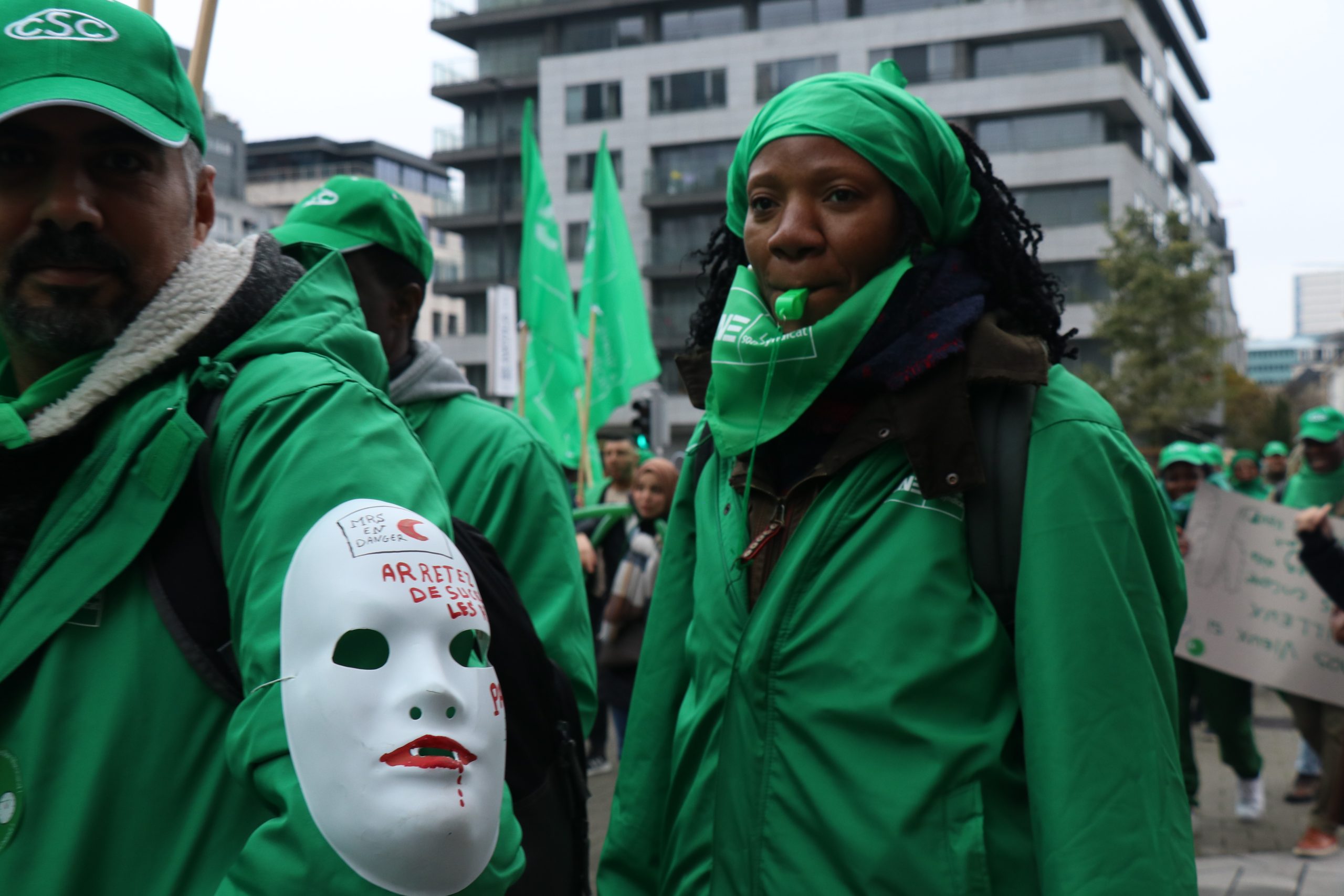
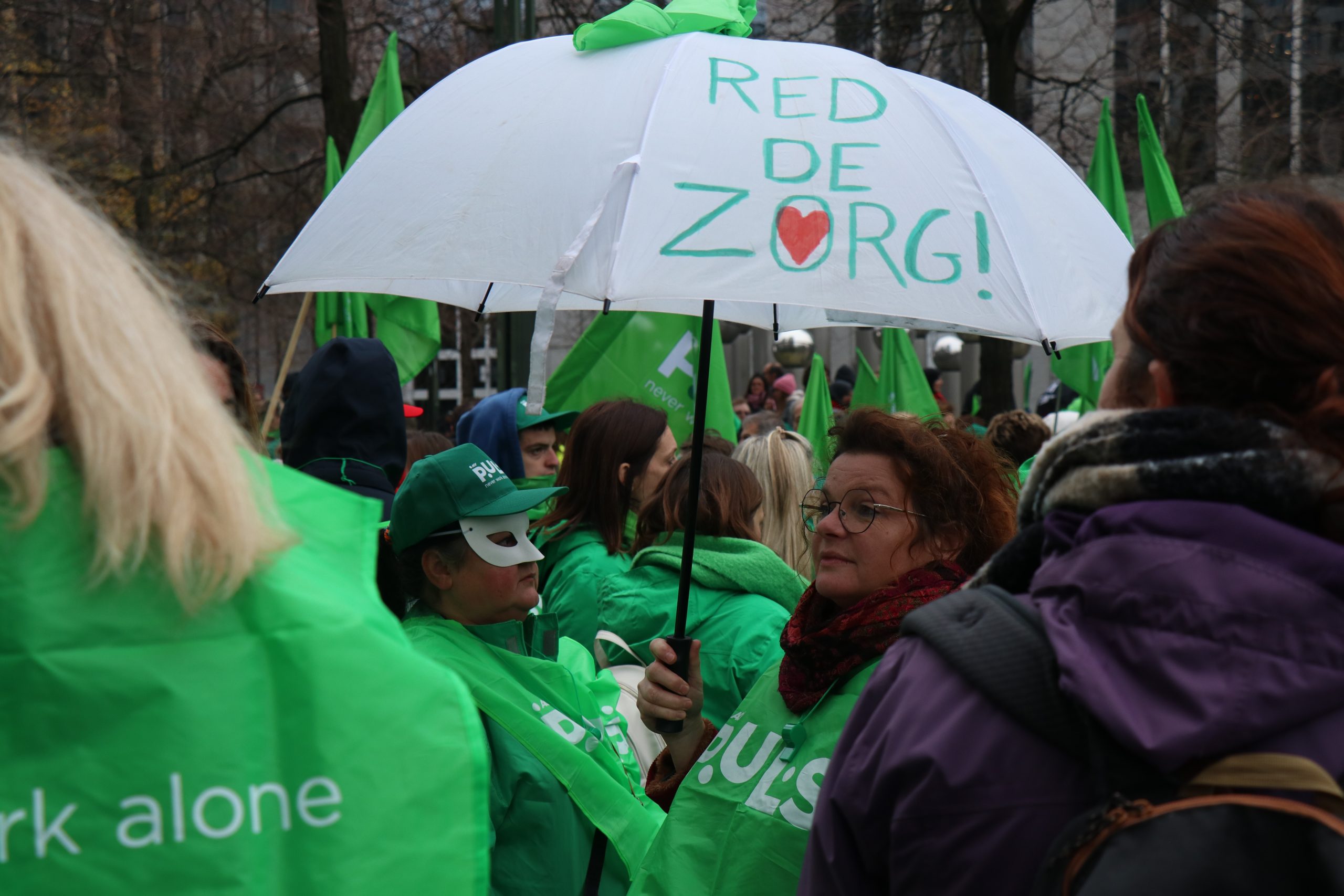
As time advances and more people join the bustling crowd, the number of people agreeing with Remy and Goudriaan’s words becomes apparent. T-shirts and scarves are handed out to the members of trade unions, but non-members also join in. The police has counted around 25.000 protesters, trade unions say there were 32.000 people attending. Whichever number is correct, the fact remains that this is an astonishingly large number of people, all chanting the same message.
"Cutbacks? No!"
"Investments? Yes!"
The crowd shouts back to the speakers as loud as it can. Anger is apparent, and according to Remy, it is not misplaced. “Before Covid, pressure on the sector was already gaining. The pandemic worsened the already existing problems in all countries, at least in the countries surrounding Belgium.”
- The chanting continues the entire march, making sure all the people witnessing the event know what it is about.
- Leading the march from his trailer, the speaker shouts lines and chants for the others to chant back to him.
The issues workers in the non-profit sector are currently dealing with can be traced back to the financial crisis of 2008, according to Goudriaan. “This was a period of cutbacks in the funding of public services, quickly causing trouble for the non-profits.” He explains it accumulated from there on out, as the crisis was followed by more cutbacks in the years coming. “Then, in 2020, Covid came along, massively worsening the situation.”
According to the World Health Organization (WHO), there is an estimated shortage of 1 million health workers in Europe. This high number gives shape to the claims of the protesters. One Belgian nurse, walking at the front of the procession, expresses her anger and says she feels taken for granted: “We are caregivers, but who will take care of us? There are two sides to this coin, we are no machines, but humans with human capabilities and boundaries.”
Another man starts talking about the Belgian government, and how the non-profits have, according to him and many other protesters, not been a priority to them: “They need us, but we feel ignored. Maybe now, they will hear us.”

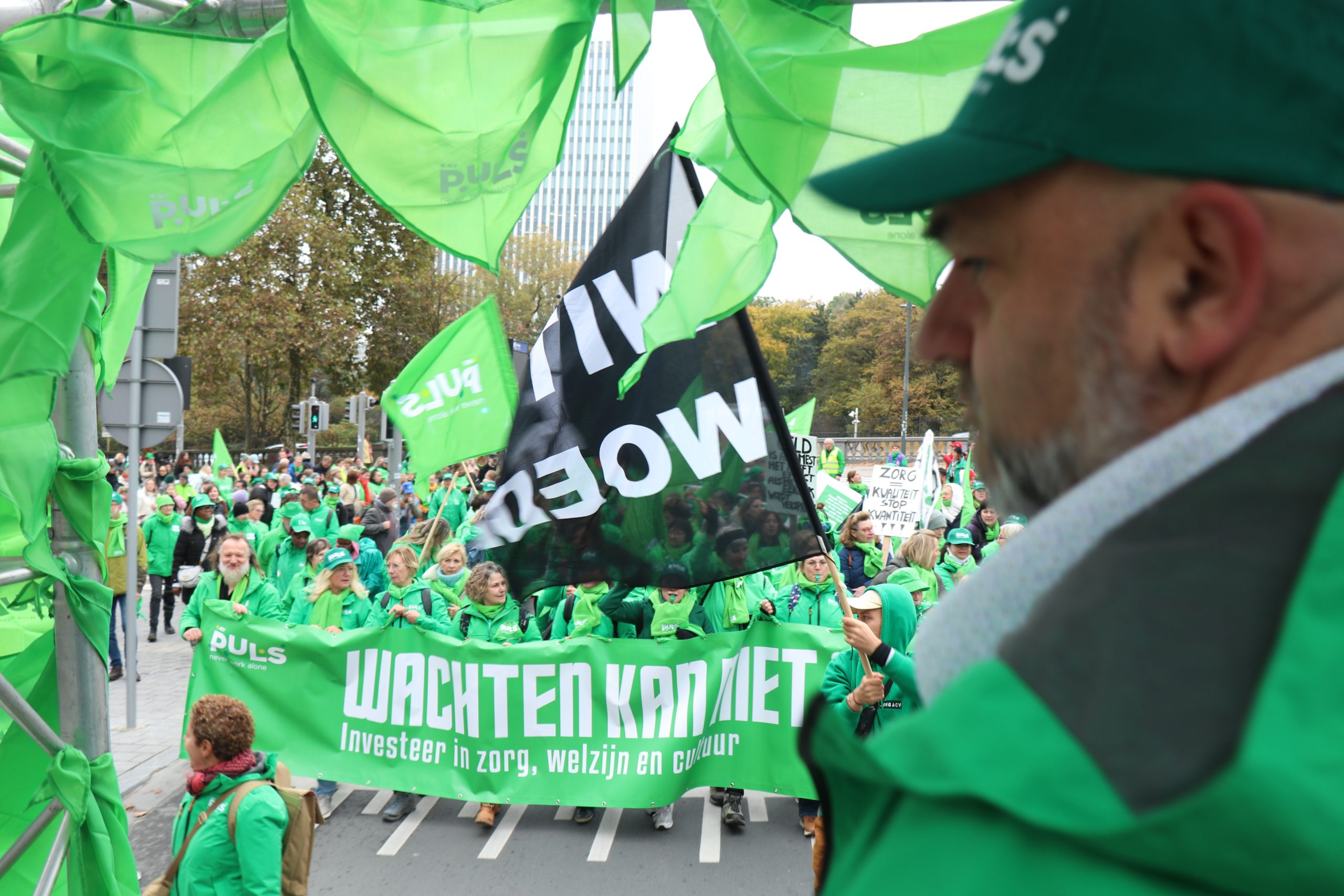
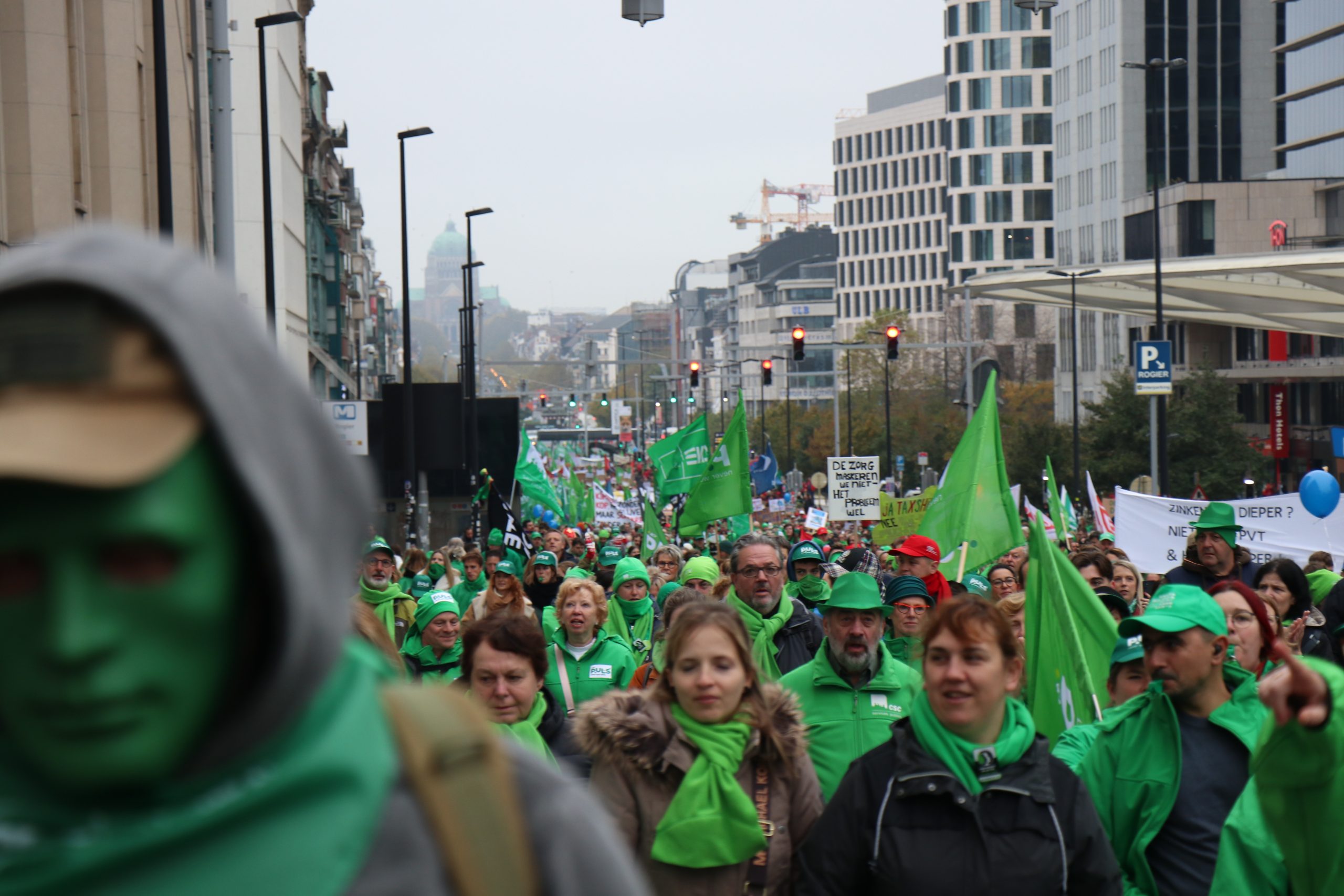
European reach
Health and care are national issues, making the European Unions’ voice on these matters small. Only national governments can decide what will happen in these sectors. Still, Goudriaan believes it would be right of the EU to undertake some form of action.
“It can start as a purely practical thing: just gather employers and trade unions of the sector, sit them down at a table and start talking about possible solutions.” This is also what the ESPU tries to enforce in different European countries; impacting policies by making the different parties share their stories and ideas.


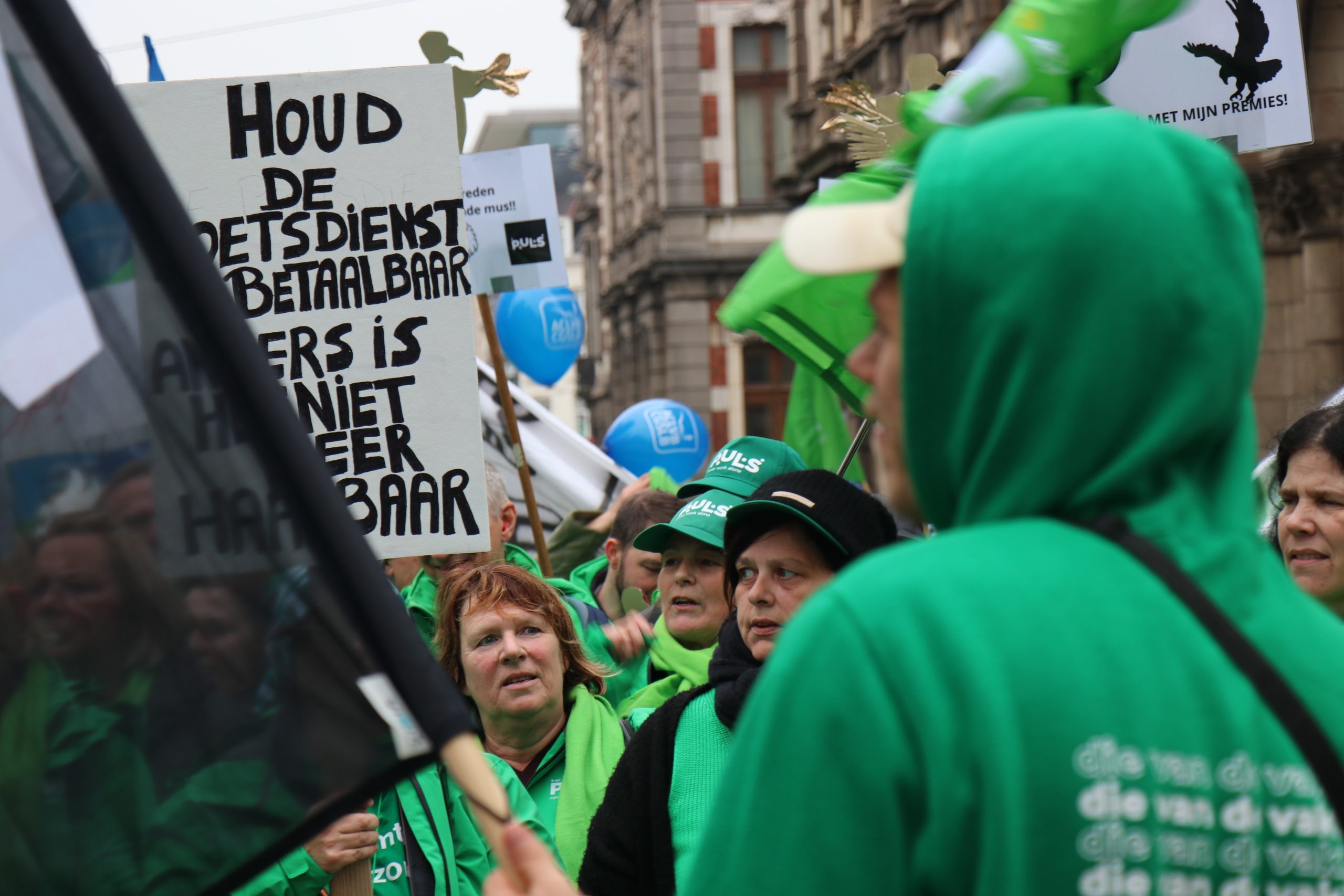
Non Profit Pulse 2024
In the yearly Non Profit Pulse Rapport, The EFA (European Fundraising Association), the Chartered Institute of Fundraising and Salesforce summarize the developments in the European non-profit sector that year. The Non-profit Pulse 2024, about 2023, shows a lot of similarities with the words of both Remy and Goudriaan. It states that “nonprofits are still experiencing fallout from the ongoing cost-of living crisis”, impacting service delivery, resources, staffing levels and staff wellbeing.
Another topic the rapport mentions is the continuing rise in service demand and costs. In 2023, organizations saw donations and funding decrease, and a lot saw the same with governmental support. As a result, “more must be done with less”. When money is tight, organizations often have to let workers go, making the challenges even more difficult and adding pressure in often already tense work environments.

Supporters made their camp along the route, treating marchers with hot drinks and warm thoughts.
This is also pointed out during the demonstration in Brussels. Tens of thousands of people march through the city, towards a similar goal. Next to the route, there are often tents, even stages, of groups of people casting their support. A group of nurses, also forming a choir to set the mood, hands out hot tea and coffee to the frontliners, who gratefully accept the steaming cups into their hands, cold and stiff from holding the big signs and banners this grey November morning.
Teamwork
Next to the blocked roads, accidental passersby stare at the scene. Tourists counting on a quick visit to the Margritte Museum look confused as they have to let 30.000 people pass before being able to cross the road. Even though all participants are here to express their disappointment in the government, the mood is often festive. Loud music plays from the speakers on the cart up front, where the man alternates his angry chants with some fun dances. Gigantic plastic balls are thrown into the crowd, making them work together even more.
“This sector has a long history of working together. There is a certain understanding between the different areas, making it possible for the bigger ones, like hospitals, to carry smaller ones, like daycares, along.” Olivier Remy looks out over the crowd before continuing: “Because of this, we have these occasional special moments where we are all together on the streets. I think that’s beautiful.”
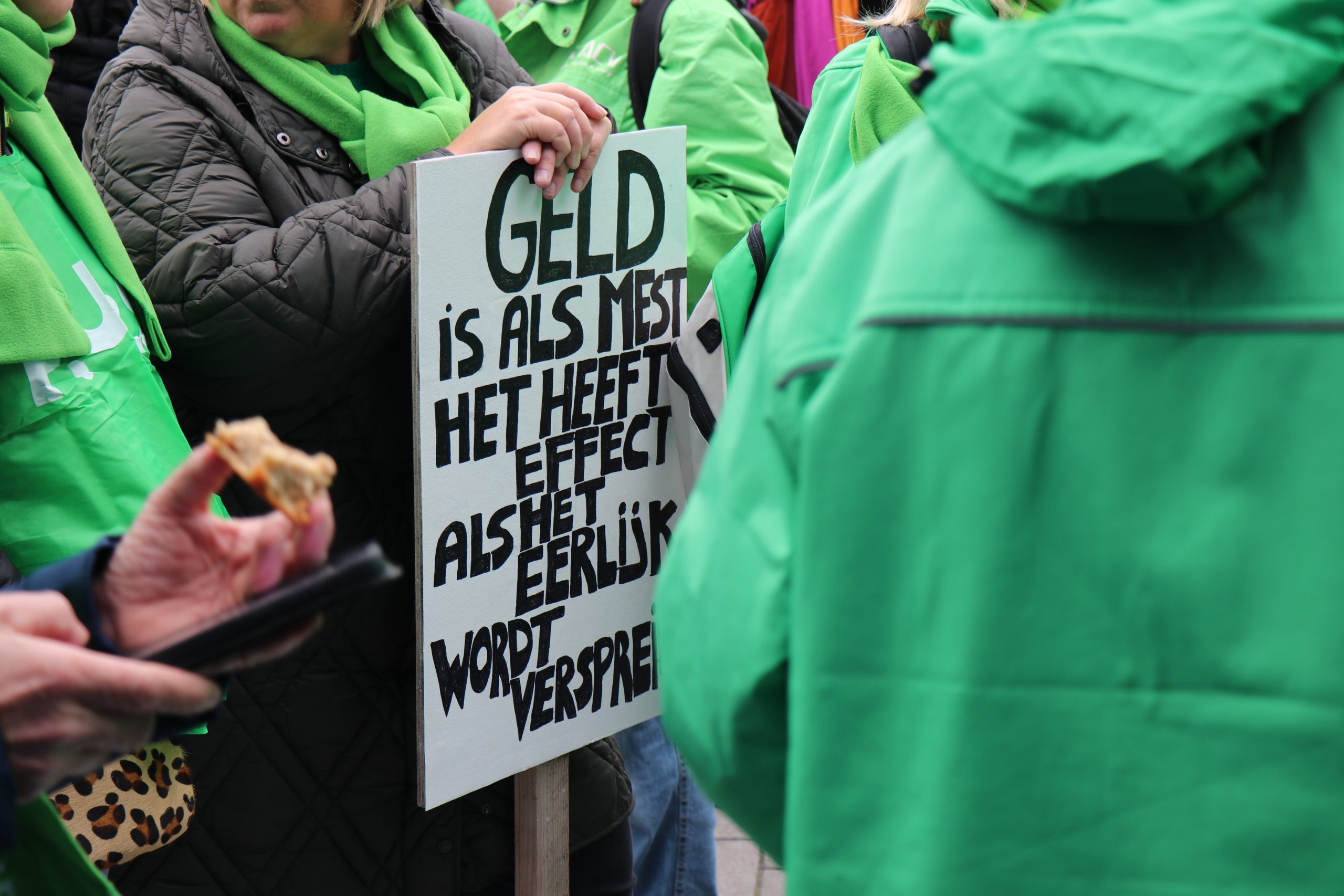
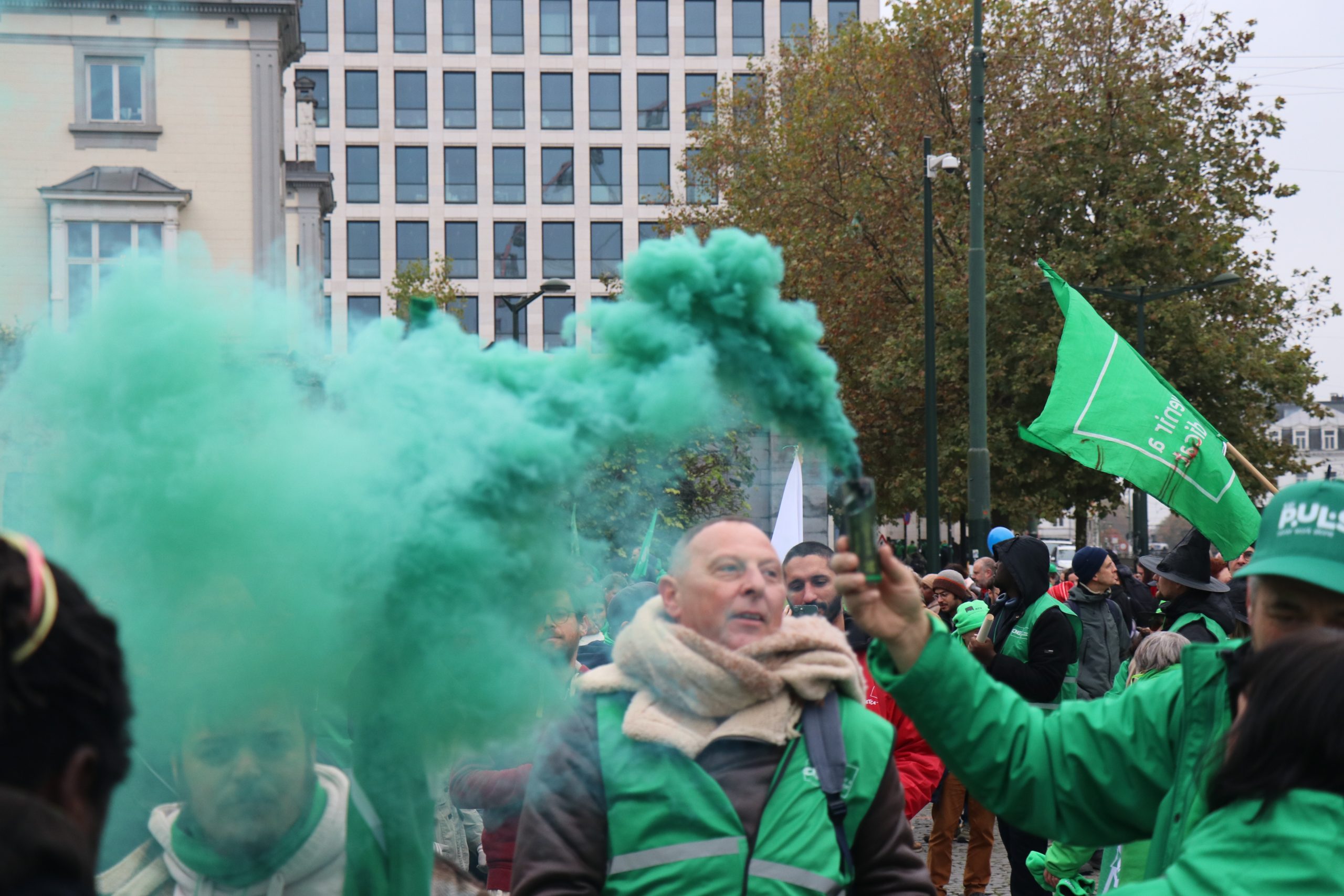
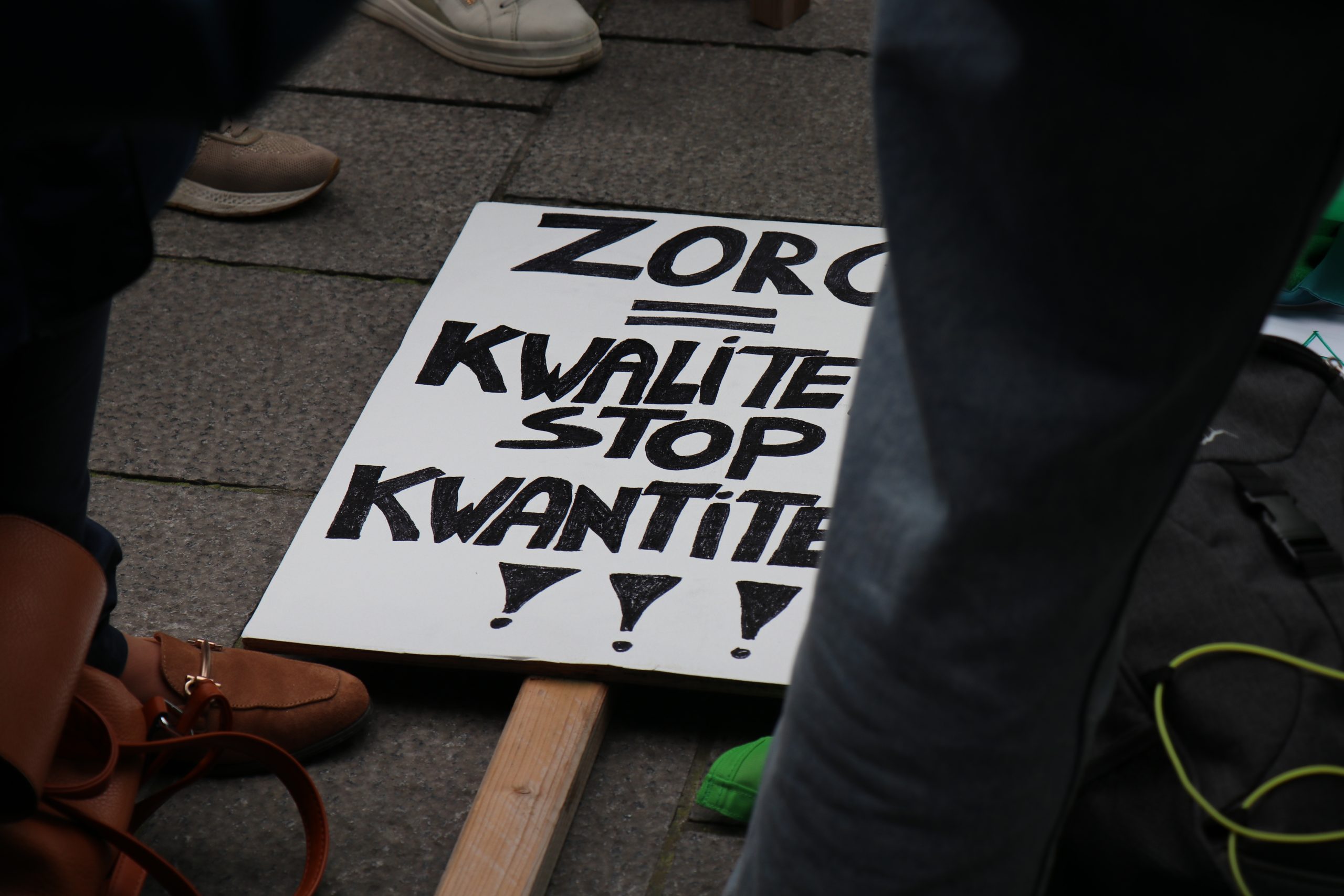
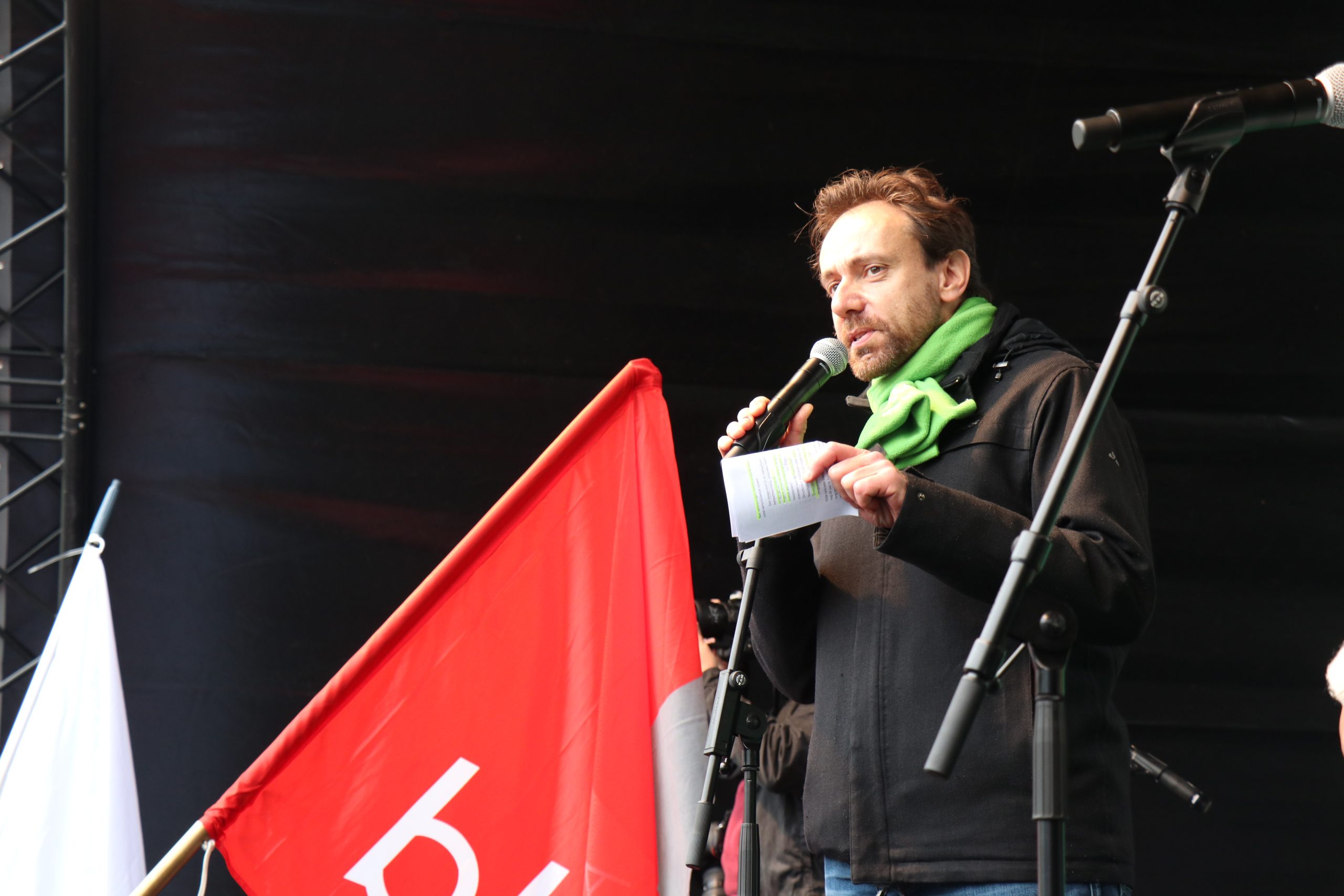
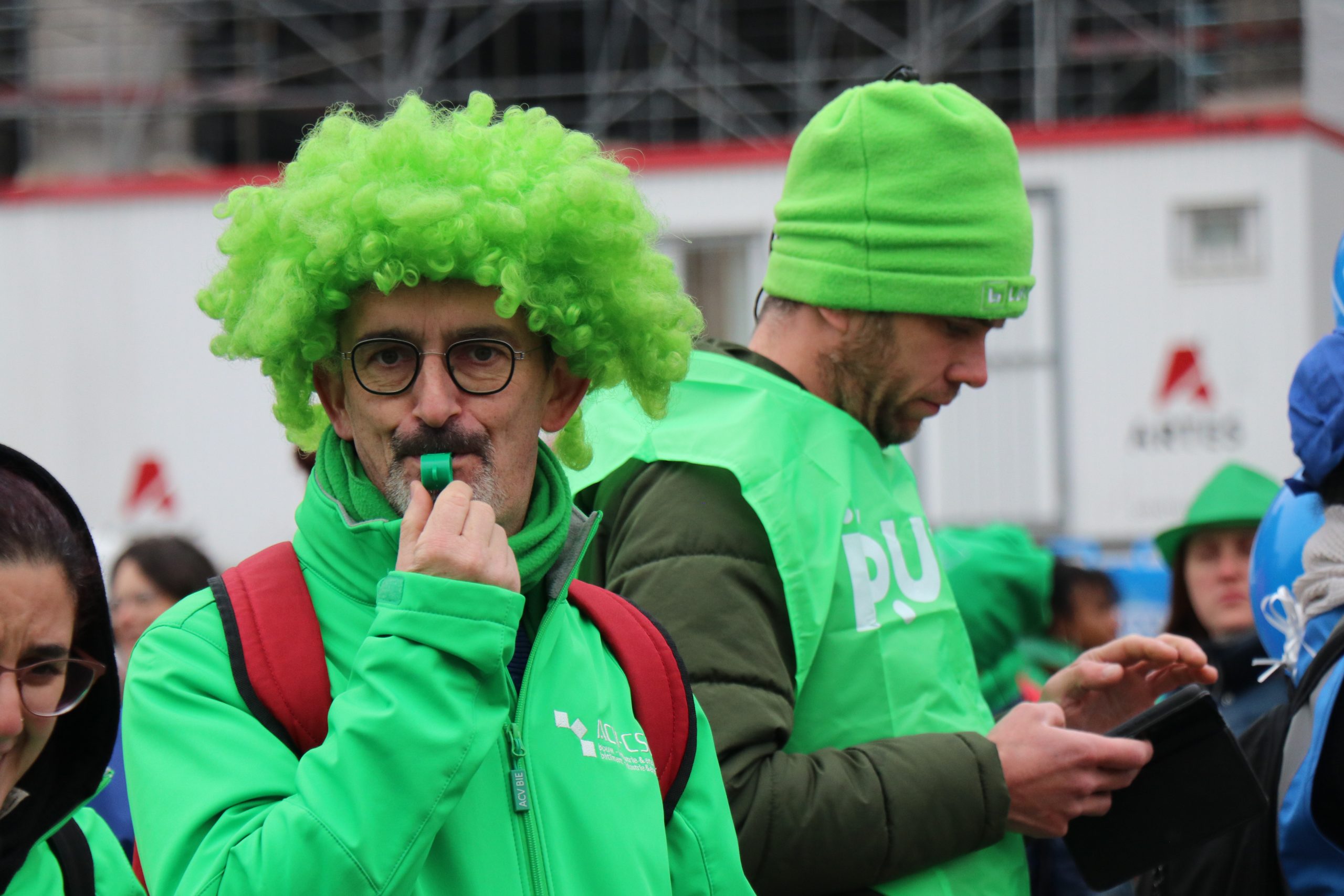
When the crowd reaches the end of the route, they station themselves on the square. A podium has been set up, playing loud music and giving speakers a chance to be seen and heard. Olivier Remy is one of these speakers, telling the crowd about the importance of this togetherness they have displayed today, and how they will continue fighting for their cause.
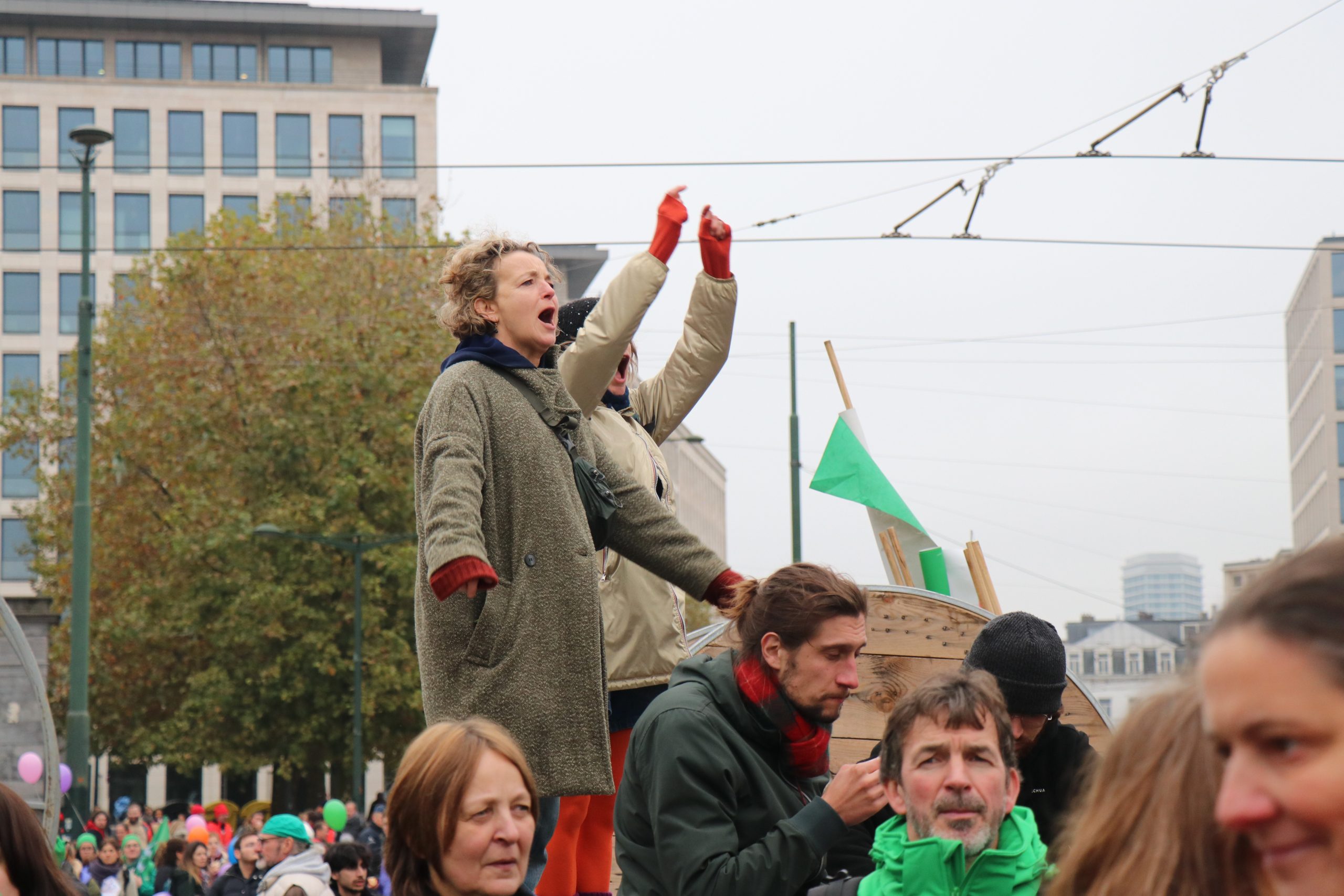
As speaker on stage talk about the issue to a crowd completely agreeing with them, emotions can get high.
Even though this is only the Belgian sector, many European countries deal with the same issues. For now, Olivier Remy hopes the new Belgian government will acknowledge the sector more after this and start the conversation with them. “If not, we will try again. Our voices must be heard.”
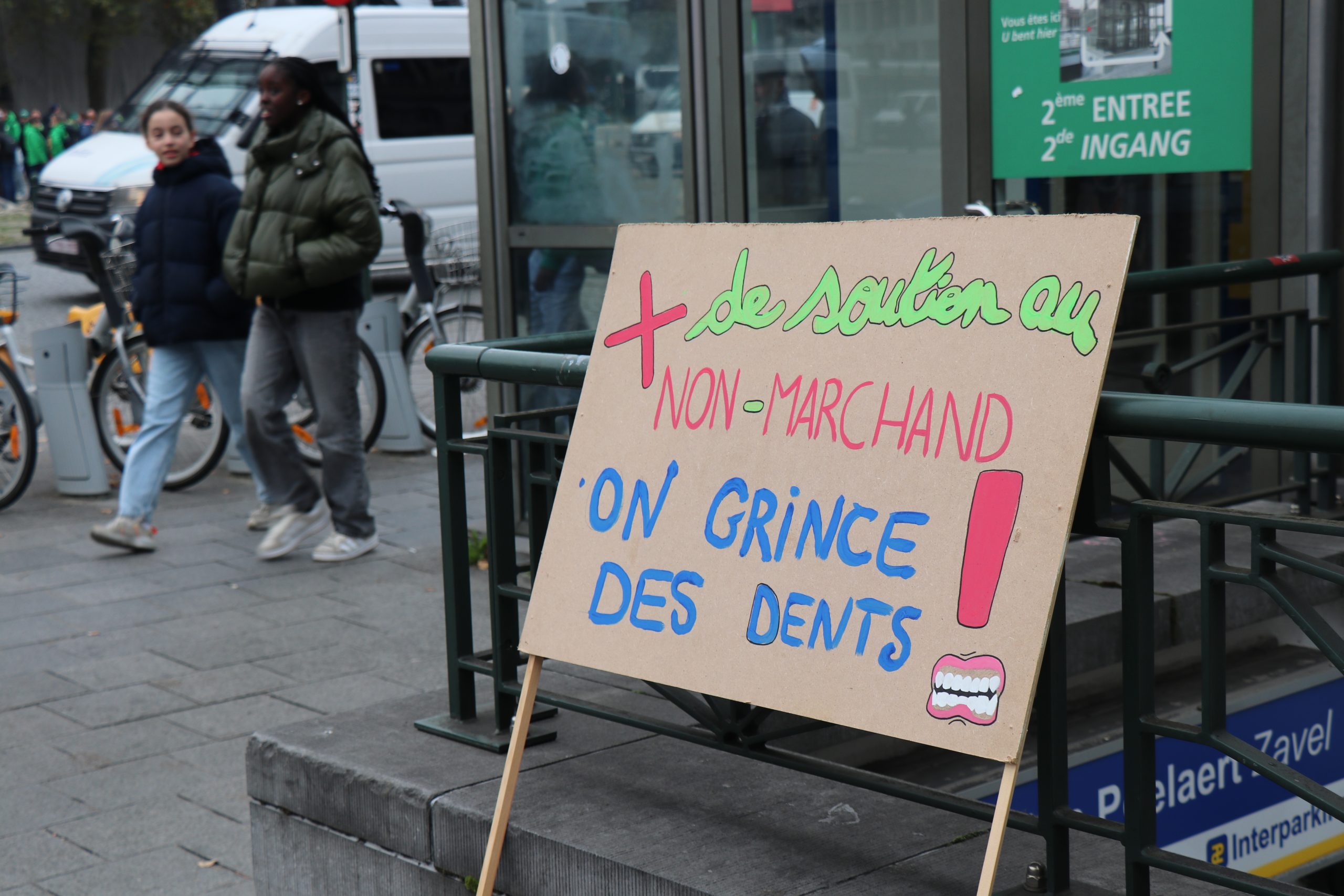
After the protest is done and people go home, some props are always left behind. This abandoned sign says “We are gnashing our teeth at the support for non-profits”
